Countries
Turkey
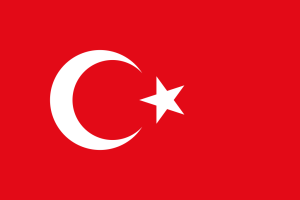
The Open Access movement in Turkey began mainly with the activities of ANKOS (The Anatolian University Libraries Consortium) Open Access and Institutional Repositories (OAIR) Working Group in 2006. With the participation of IZTECH (Izmir Institute of Technology) in OpenairePlus project in 2011, OpenAIRE 2020 project in 2015 and OpenAIRE Advance project in 2018, Open Access and Open Science practices gained tremendous momentum in the country.
“The National Open Science Committee” was set up by the Turkish Scientific and Technological Research Council (TUBITAK) in the year 2015 and CoHE established “Open Science and Open Access Working Group” in the year 2018 and “Turkey Research Data and Open Data Task Force” sub-working group in 2019. T.C. Sanayi ve Teknoloji Bakanlığı (Republic of Turkey Ministry of Industry and Technology has been aiming the national research environment with a view to enhancing the competitiveness of the country in the international level.
Sweden

The Swedish Government’s direction for the next ten-year research policy, as set out in the Swedish Research Bill 2016, includes the goal that scientific publications which are the result of publicly funded research should be made immediately open access on publication.
In the Research Bill Knowledge in Collaboration, the Government states that open access to research results contributes to maintaining and furthering excellence in research. Open access to research output can advance science by making it possible for more researchers to validate and build on previous work. Further, that open access plays an important role in society at large and that research and innovation to a large extent is carried out within the industry and in the business and public sectors. All stakeholders have a common responsibility in fulfilling this objective. The Government states that clear incentives and mechanisms are needed in order to encourage researchers to publish their research output immediately open access.
All major universities have policies or strategies with recommendations to publish their research results in open access. Almost all other HEIs also have similar recommendations for open access. Four HEIs have Open Access mandates; these include Blekinge Institute of Technology, Chalmers University of Technology, Malmö University and Umeå University.
There are four national agencies distributing research funding in Sweden and advising the government on research-related issues. Three of them, the Swedish Research Council (VR), Swedish Research Council for Environment, Agricultural Sciences and Spatial Planning (Formas) and Swedish Research Council for Health, Working Life and Welfare (Forte) have mandates for open access to publications. The fourth, the Swedish Innovation Agency (Vinnova), has no open access mandate.
VR is the largest Swedish funding agency for basic research in Natural Sciences, Technology, Medicine, Humanities and Social Sciences at Swedish HEIs. VR signed the Berlin Declaration on Open Access to Knowledge in the Sciences and Humanities in 2005 and adopted an OA mandate in 2010. Researchers receiving grants from VR must either publish their journal articles in electronic journals in open access (the mandate does not apply to monographs and book chapters). Alternatively, they have to archive the article in an open institutional or disciplinary repository immediately after, or within at most 6 (Natural Sciences, technology and Medicine) or 12 (Educational Sciences or Humanities and Social Sciences) months, of its publication in a traditional journal. Since 2015 only OA publications can be reported in the project reporting form for VR funded research. Starting in 2017, researchers who pay for APCs (Article Processing Charges) with funding from VR are required to publish their outputs with a CC-BY licence. Formas adopted an OA mandate in 2010, and in 2011 Forte did likewise. These mandates align to a large extent with the VR mandate.
Spain
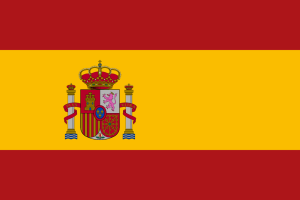
The National Government in Spain is fully committed with the OA2020 target, and it has been working on designing and implementing its open access policy. Nowadays, the legal framework regulating the open access deposit of scientific publications is the Act 14/2011, of June 1, on Science, Technology and Innovation, which urges researchers to deposit the final digital version of their contributions to journals in an open access repository.
Article 37 “Open access dissemination” mandates the following:
- Public workers of the Spanish Science, Technology and Innovation System will drive forward the development of own or shared open access repositories for the publications of their researchers and will establish systems allowing their connection to similar national or international initiatives.
- Researchers whose research is financed mostly with funds from the General Budget of the State will make public a digital final version of the contents that have been accepted for publication in research journals, as soon as possible and no later than twelve months after the official date of publication.
- The electronic version will be made public in open access repositories recognised in the field of knowledge of the research or in open access institutional repositories.
- The public electronic version may be used by public administrations in their assessment procedures.
- The Science and Innovation Ministry will facilitate centralized access to repositories and their connection to similar national or international initiatives.
- The above is understood without prejudice of the agreements by virtue of which rights over the publications have been conferred or transferred to third parties, and will not be applied when the rights over the results of research, development and innovation are liable to protection.
Aiming to reinforce the application of the Article 37 on open access dissemination within the Law 14/2011, FECYT published a set of recommendations for the implementation of the Article 37 of the Spanish Science, Technology and Innovation Act (2014), developed by a group of experts. Another relevant report published by FECYT is the report on good practices for the management of research data (2012), aiming to assist in the standardization of research data management in repositories to facilitate its preservation, access and distribution.
The Spanish Strategy for Science, Technology and Innovation 2013-2020 envisages access to data and microdata, as well as publications and results publicly funded research as one of its six articulation mechanisms. The main aim of this initiative is to drive the development of repositories, own or shared, open access to the publications of its research staff, and establish systems to connect with similar initiatives nationally and internationally. The regulation related to official PhD studies (RD99/2011, January 28th) includes the mandate for Universities to deposit an Open Access electronic copy of all PhD theses at the institutional repositories.
Additionally, it may also be relevant to mention the regulation related to the transparency of public sector information.
Nevertheless, policies are still a work in progress, as stated by the ERA Spanish National Roadmap (2016)remarking the need to review and adapt existing policies for the promotion of open science (publication of results and data) covered by –national and international– experiences and recommendations.
Slovenia
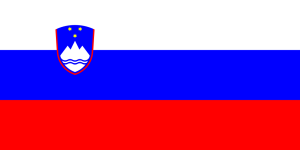
The Government of the Republic of Slovenia adopted the National Strategy of Open Access to Scientific Publications and Research Data in Slovenia 2015-2020 in September 2015 and the action plan in May 2017. Each beneficiary has to ensure open access to all peer-reviewed scientific publications that refer to the results from the publicly funded research.
University of Maribor Library and Academic and Research Network of Slovenia (ARNES) are partners in the NI4OS-Europe project (National Initiatives for Open Science in Europe) that will facilitate the collaboration of national open science stakeholders and onboarding of national open science infrastructures into the EOSC.
SLING is a Slovenian national supercomputing network that provides access to cluster-based Slovenian and international computing and storage capacities.
HPC-RIVR (High Performance Computing – Research Infrastructure Eastern Region) project has established a national supercomputing centre. Supercomputer VEGA is part of the EuroHPC Joint Undertaking.
Research datasets can be deposited into the Social Science Data Archives and CLARIN repositories. Data archives are being built by the national supercomputing centre HPC RIVR and ELIXIR Slovenia, which are in collaboration.
Open Data Portal Slovenia (OPSI) enables access to data, tools and resources that can be used for development of applications and other purposes.
VideoLectures.Net enables access to more than 26,400 videos of lectures from around the world.
Jožef Stefan Institute became the first International Research Centre for Artificial Intelligence (IRCAI) under the auspices of UNESCO.
Slovakia
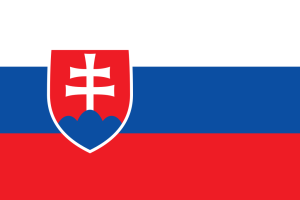
The main contact point for EOSC in Slovakia is the Slovak Centre of Scientific and Technical Information (SCSTI). SCSTI is a national information centre and specialised scientific library of the Slovak Republic focused on natural, technical, economic and social sciences. SCSTI is also national key OA stakeholder. More information can be found .
With regard to the integration of the scientific and research infrastructure of the Slovak Republic into the EOSC, since 2017 SCSTI has been building a comprehensive ecosystem of R&D infrastructure consisting of selected ICT research infrastructures built by universities and the Slovak Academy of Sciences. Each R&D institution operates its own infrastructure. The aim is to integrate these ICT infrastructures so that in the future there will be no duplication of research infrastructures at Slovak research institutions. Together, these research infrastructures, under the leadership of SCSTI, will gradually create a coherent ecosystem of ICT research infrastructures that will serve the entire scientific community.
Serbia

By adopting the Open Science Platform (2018) and the Law on Science and Research (2019), the Ministry of Education, Science and Technological Development showed its commitment to implement the principles of Open Science in Serbia. In order to an effective implementation of OS principles the Ministry has established the Team for Open Science in Serbia (TONuS) on 16 January 2020. TONuS includes a broad group of experts in this field: 6 decision-makers, 17 researchers, 6 librarians and research-support stuffs with the main task to identify and define all improvements, measures and regulations related to Open Science, and to ensure that they are implemented in the local research community as efficiently as possible.
Romania

Open Access and Open Science receives limited support as part of the European Research participation in the European Research Area, and through the National Plan for Research and Innovation 2015-2020 – PNCDI III.
Open Access has been part of the National Plan for Open Government Partnership. As an active engagement of Romania in the global initiative of 69 countries called Open Government Partnership, the Action Plan 2014 – 2016 included for the first time Open Access as a distinct commitment. The main objective was “optimising the impact of the publicly funded scientific research”. The milestones entailed the following; monitor how Open Access is included in the Romanian public funded research programs (continuous process), provide recommendations on how to operate and integrate repositories at the national level (December 2015) and put forward proposals for elaboration on a National Open Access Policy (December 2015).
Portugal

The Government and the Ministry of Science, Technology and Higher Education (MCTES) have defined as a priority the commitment of science to the principles and practices of Open Science. They are therefore engaged in the elaboration and implementation of a National Open Science Policy based on the statement that Knowledge belongs to all and is for all. In pursuit of this goal, the MCTES published in February 2016 a document with the Guiding Principles for Open Science and in March 2016, the Council of Ministers approved a resolution with the guidelines for the National Open Science Policy and mandated the MCTES to create an Interministerial Working Group (WG-NOSP). The National Open Science Policy will be presented to the public in 2018, subject to discussion.
The Conference of Rectors of the Portuguese Universities (CRUP) has recommended to the Portuguese research funding organizations that they implement a policy of mandatory depositing of the research output, and CRUP generally supports the EUA Working Group recommendations. At the national level, there are more than twenty institutional mandates.
Fundação para a Ciência e a Tecnologia – FCT, the major national funder, launched (May 2014) the Open Access policy fully in line with EC recommendations. The mandate requires the deposit in a repository of the Portuguese repositories network – RCAAP.
Poland
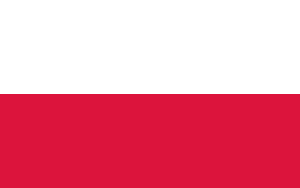
National policy
A national open access strategy is under preparation. In 2015 Poland has accepted an initial document that lays a foundation for a future national open access policy. The document, entitled “Directions of the development of open access to research publications and research results in Poland”, recommends a move towards open access to all relevant stakeholders. In March 2018, the Ministry of Science and Higher Education (MNiSW) published a report on the implementation of open access policy („Raport nt. realizacji polityki otwartego dostêpu do publikacji naukowych w latach 2015-2017”, in Polish only). The document summarized the efforts that had been undertaken in years 2015-2017, identified barriers to open access and provided recommendations for further work.
Institutional policy
An increasing number of academic and research institutions in Poland are developing and implementing open access mandates. In the past year, four institutions adopted open access policies and over 10 institutions began preparations in this direction. Recent developments are highlighted on Poland’s page on the OpenAIRE portal.
Funder policy
The National Science Centre (NCN) was among 11 national research funding organisations that launched the cOAlition S in 2018. In 2019, NCN announced plans to introduce open science policy, as well as the requirement for data management plan (DMP) and published guidelines for applicants to complete the DMP form in the proposal.
In February 2020, members of the Council of the National Science Centre expressed their approval for a new open access policy to publications created as a result of research projects funded entirely or in part from NCN resources. The obligation to ensure open access to published research findings will apply to all projects recommended for funding under calls announced on 16 June 2020.
EOSC
Institutions involved in EOSC-related projects:
- PCSS – Poznan Supercomputing and Networking Center affiliated to the Institute of Bioorganic Chemistry of the Polish Academy of Sciences;
- Academic Computer Centre CYFRONET AGH
The national participation in EOSC-related projects are listed on EOSC Synergy.>

